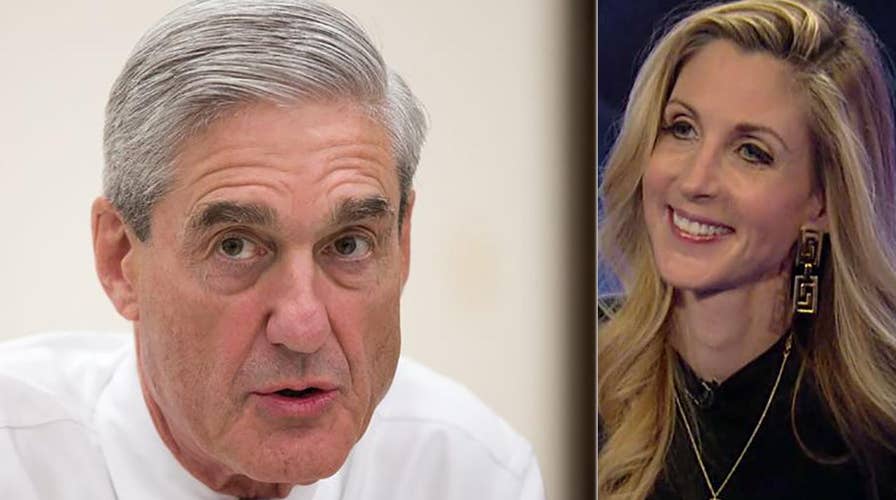Ann Coulter: What is it that Mueller's investigating?
Conservative columnist speaks out on 'Justice with Judge Jeanine' about the Russia investigation and the declassified FISA memo.
President Trump’s legal team wants him to decline to speak directly with special counsel Robert Mueller, the New York Times reported, citing several sources briefed on the matter.
If Trump ultimately rebuffs a request for an interview, Mueller could pursue a subpoena compelling his testimony – setting the stage for a high-stakes court battle pitting executive privilege against prosecutorial authority that would almost certainly reach the Supreme Court.
In late January, Trump said that he “would love” to be interviewed by Mueller “as soon as possible,” before cautioning that any such conversation would be “subject to my lawyers, and all of that.”
Conversations between the Mueller team and the White House regarding an interview with Trump have been ongoing, but specific information “regarding how and under what terms information will be exchanged are understandably private," Trump lawyers John Dowd and Ty Cobb told Reuters.
Mueller’s probe already reached some of the highest levels of the White House. Fox News learned in January that more than 20 White House personnel have voluntarily given interviews to Mueller’s team investigating Russia’s actions during the 2016 election.
A personal attorney for Trump also said the White House turned over more than 20,000 pages of records to investigators, calling the level of cooperation “unprecedented.”
And Attorney General Jeff Sessions spent several hours being grilled by the special counsel’s office in January -- the first time that investigators for the special counsel are known to have interviewed a Cabinet member.
But Trump’s lawyers are particularly concerned that the president would make a false statement or contradict himself during a one-on-one with Mueller, the Times reported.
“The idea of putting Trump in a room with five or six hardened, very clever lawyers, all of whom are trying to trick him and trap him, would be a very, very bad idea,” former House Speaker Newt Gingrich told Fox News.
Lying to federal investigators is itself a crime, even if prosecutors cannot prove that any other criminal activity occurred.





